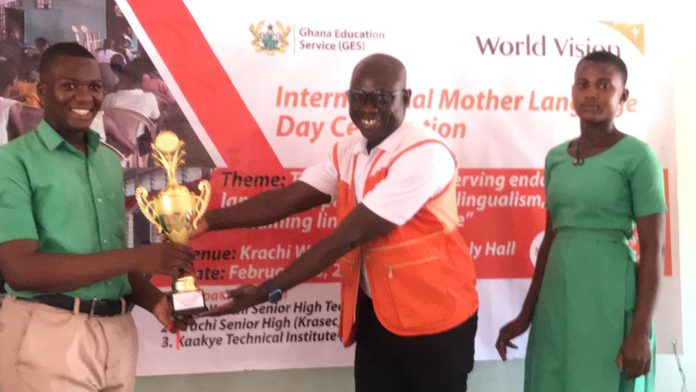The Education Project Officer at Kete-Krachi Cluster of World Vision Ghana in the Krachi West Municipality of the Oti Region has urged the Ghana Education Service (GES) to enforce the implementation of the Local Languages Policy in schools.
This, he said is to promote teaching and learning of the mother tongue to make education meaningful to learners.
Mr Brako Sasu noted that, World Vision Ghana is concerned about the diminishing Ghanaian languages both in writing and in speech and several measures have been put in place by distributing materials in local languages to schools to promote efficiency in education.
He said culture significantly manifests in the language speaking of a people, therefore it is imperative to promote the writing and speaking of the mother tongue to entrench the Ghanaian culture.
Speaking at an event to promote multilingualism in Ghana, the Project Officer urged the government to enhance training programs at colleges and universities to equip educators with proficiency in diverse local languages.
He believes that, the creation of written documents by the government and GES of the local languages will help preserve the rich vocabulary and linguistic heritage for future generations.
Mr. Sasu urged the government to expand the availability of educational resources by developing a broader range of books and materials in local languages to facilitate greater access to learning opportunities for students.
The debate was Organized by World Vision Ghana in collaboration with the Karachi GES directorate between Karachi SHS and Kaakye Technical Institute to promote the noble cause of preserving multilingualism and linguistic heritage.
For his part, the Chief Inspector of Schools in the Krachi West Educational Directorate, Eric Kofi Ofori encouraged parents and guardians to communicate with their children in the mother language to ensure familiarity and proficiency.
He said education would become meaningful to learners when the local language is used as the number one medium for instruction at all educational levels.
Aside the language issue, Mr. Ofori also appealed for adequate classrooms for local languages studies.

